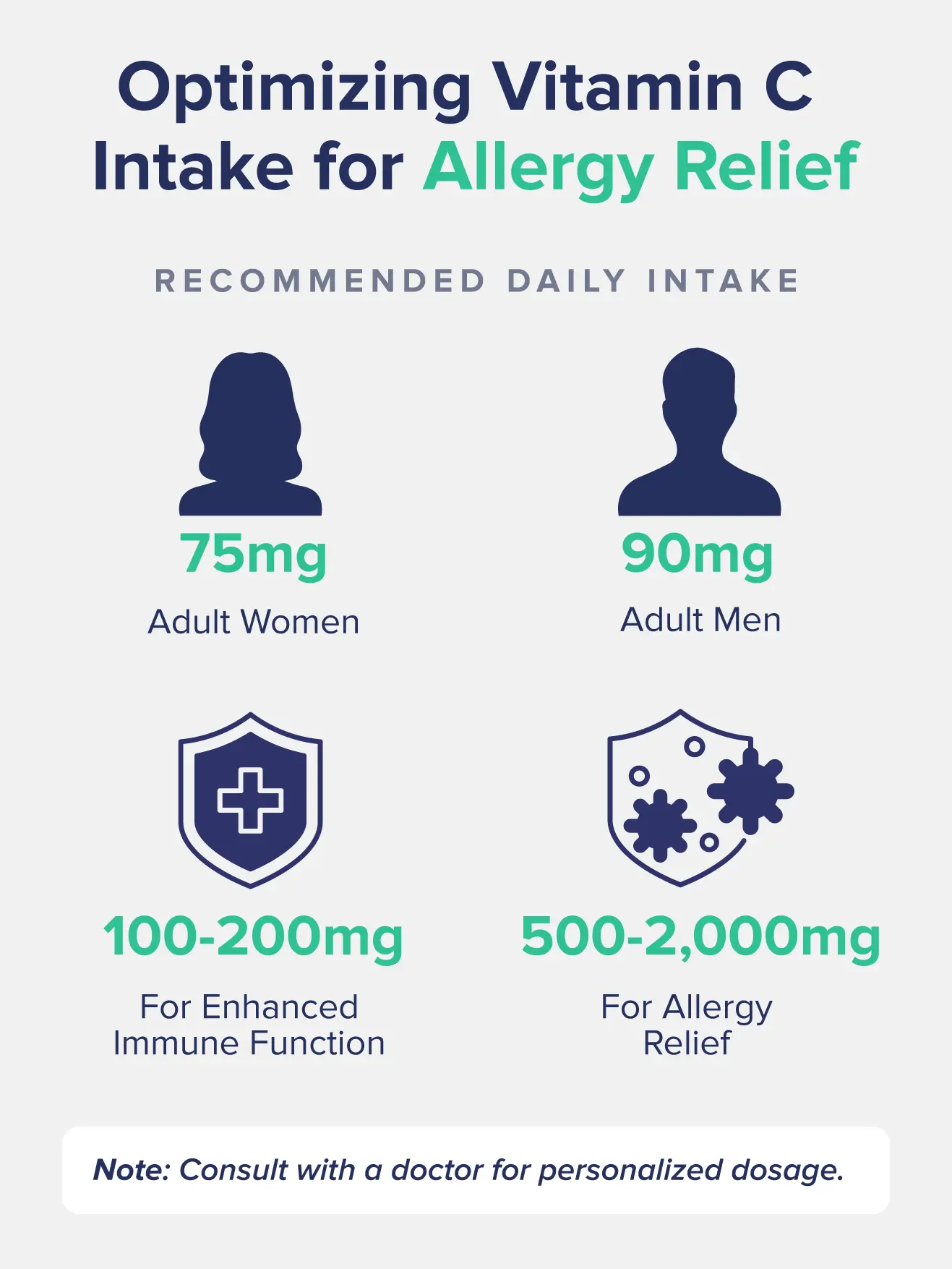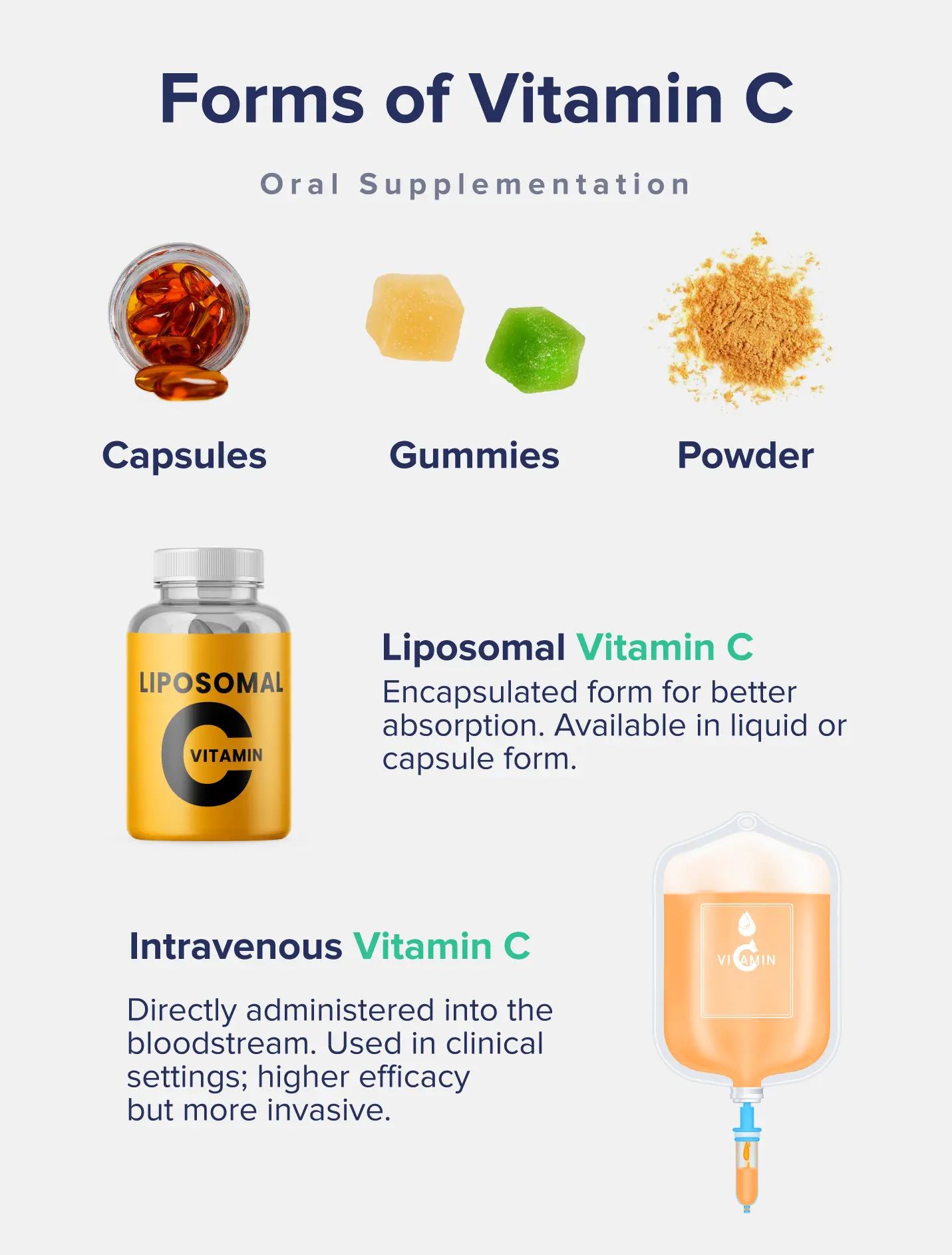Talk to a Registered Dietitian and use INSIDER20 for 20% off!
Talk to a real Dietitian for only $99: Schedule Now
This post contains links through which we may earn a small commission should you make a purchase from a brand. This in no way affects our ability to objectively critique the products and brands we review.
Evidence Based Research To fulfill our commitment to bringing our audience accurate and insightful content, our expert writers and medical reviewers rely on carefully curated research.
Read Our Editorial Policy
Allergy sufferers everywhere are well acquainted with the challenges of alleviating their allergies and dealing with allergy symptoms.
The sneezing, itching, watery eyes, coughing, swelling, and headaches can be overwhelming, especially during allergy season.
While popular over-the-counter (OTC) antihistamines (Benadryl, Claritin, Zyrtec, etc.) and corticosteroids (Flonase) can help reduce or prevent some allergy symptoms, they can also make you feel drowsy, cause dependence (also called the rebound effect), or even stop working entirely.
But what if there was a way to alleviate your allergies naturally?
Thanks to its powerful antioxidant, anti-inflammatory, and immune system-supporting effects, vitamin C might just be the answer.
To get to the bottom of what this vitamin can do to help allergy sufferers, we’ll explain what causes allergies in the first place and how vitamin C can help relieve allergies for allergy sufferers.
While we want to answer your burning question, it’s important to know what causes allergies in the first place so you can better understand how vitamin C may help alleviate them.
In the simplest explanation, people with allergies have an overactive immune system that reacts to harmless external substances.
So, when pollen, dust, pet dander, mold spores, foods, medications, etc., enter their bodies–– either by breathing, eating, or coming into physical contact with them––the body’s immune cells (called mast cells) produce histamines that cause allergy symptoms like sneezing, a runny nose, or watery eyes.
The immune system can even be so overly sensitive that the resulting immune response is overly severe and even life-threatening, as we see in the case of anaphylaxis with food allergies.
People with allergies can take OTC medications to help relieve allergy symptoms, but these aren’t 100% effective. They can come with lots of side effects and, in reality, are just a bandaid for the larger issue at hand––the overactive immune system.
Luckily, allergy sufferers do have some other options available to them, and new treatments are constantly being researched.
Skin or blood tests can identify specific environmental (indoor and outdoor) and food triggers so people with allergies can try and avoid these substances.
After this testing, severe allergy sufferers can also try subcutaneous (injection) or sublingual (under the tongue) immunotherapy, which is customized to their specific allergens and can help reduce the immune system’s sensitivity to those allergens.
Unfortunately, these forms of immunotherapy can be costly, and it takes years of weekly injections to see results, which is not convenient for most working adults.
However, there is also a new intralymphatic immunotherapy (injection into the lymphatic system), which only takes three injections over 12 weeks and has a great success rate. It is also costly (around $3,300) but requires less time commitment than current immunotherapy treatments.
At the end of the day, there isn’t yet a cure for allergies. However, that doesn’t mean you have to just live with them if you can’t tolerate OTC allergy medications and don’t want (or maybe can’t afford) immunotherapy treatment.
This is where vitamin C comes into play.
Vitamin C, also known as ascorbic acid, is a water-soluble vitamin––meaning our bodies cannot store it for long periods of time compared to fat-soluble vitamins such as vitamins A, D, E, and K.
This means we need to continually get vitamin C from foods we eat, such as citrus fruits.
Vitamin C has a number of health benefits but is most remarkable for its antioxidant and immune-supporting properties and its ability to help us absorb iron and synthesize collagen.
As a result, vitamin C is one of the most important vitamins in the function of the human body.
When it comes to allergies, there is evidence that vitamin C can act as a natural antihistamine by preventing histamines from being released in the first place.
This study even saw a 38% decrease in histamine levels after subjects were given 2,000mg of vitamin C per day for two weeks.
This is different from the usual OTC antihistamines that work by blocking histamine receptors to prevent allergic reactions.
This effect is supported by both experimental and clinical trials using vitamin C to prevent anaphylactic reactions and alleviate allergic rhinitis symptoms in animals and humans, respectively.
Additionally, vitamin C is also an anti-inflammatory and a powerful antioxidant. Per this study, this is important for two reasons:
By supplementing with vitamin C, it is possible to decrease inflammation resulting from histamine production.
Since vitamin C is also an antioxidant, it may also be able to fight off the free radicals that lead to oxidative stress and the resulting inflammation.
This can improve immune function and alleviate certain respiratory symptoms such as asthma and allergic rhinitis but also improve the severity of symptoms from lung infections.
Vitamin C can be a good natural treatment for allergies—especially if you don’t enjoy how OTC antihistamine medications make you feel, they don’t work for you, or you’re just looking for new ways to deal with your allergies.
However, if you have moderate to severe allergies, take prescribed medications to treat them, or are currently on an immunotherapy treatment plan, consult with your doctor first before starting to take vitamin C.

The cheapest and easiest way to increase your vitamin C intake is with oral supplementation––i.e., take capsules, powders, or gummies.
These forms of vitamin C are the most widely available and are readily absorbed by your body.
Look for vitamin C supplements that contain bioflavonoids since this promotes the synthesis of vitamin C.
Liposomal vitamin C is a newer form that has also been shown to be even more effectively absorbed by the body.
You could also look into intravenous vitamin C. This form of supplementation is shown to be effective at increasing the plasma levels of vitamin C in your body.
However, this is a very invasive way to supplement with vitamin C, so do proceed with an abundance of caution when seeking out “drip bars” or medical spas that provide this treatment.
In most cases, eating more fresh fruits and veggies will do more for you in the long run than any IV treatment can.

Unfortunately, many adults in the US are not consuming enough vitamin C in their daily diets.
Per the Institute of Medicine Food and Nutrition Board, the recommended vitamin C intake for adults is between 75 to 90mg per day for adult women and men, respectively.
However, taking 100 to 200mg per day is more than safe for the average adult and has been shown to support healthy immune function and reduce the risk of chronic diseases.
When it comes to allergies and other respiratory diseases, there is no official recommendation for vitamin C intake.
With that said, clinical studies reported positive results from supplementation of anywhere between 500 and 2,000mg of vitamin C per day, both via oral and IV supplementation.
While this is a very safe supplement since it cannot build up in your system like some vitamins, high doses of vitamin C, up to 2,000mg, can cause some symptoms such as nausea and upset stomach. If you’re taking a dose in this upper range, it’s important to time your vitamin C intake with a meal to prevent stomach irritation.
Thanks to vitamin C’s natural antihistamine effects, it is good for allergies. It does not block histamine receptors like OTC antihistamines and corticosteroids. Instead, it reduces the production of inflammatory histamines in the first place. Vitamin C is also a powerful antioxidant that can fight the free radicals that cause oxidative stress and lead to inflammation. This is helpful since inflammation is a hallmark of several respiratory diseases, including asthma.
While not explicitly vitamins, supplements like quercetin, bromelain, urtica dioica (stinging nettle), and NAC may benefit those who suffer from allergies. Vitamin D deficiency is also shown to strongly impact respiratory health in children, so you may benefit from supplementation if a deficiency is suspected.
Both vitamin C and quercetin are frequently cited in scientific studies as strong natural antihistamines that prevent human immune cells (called mast cells) from producing histamines that cause allergy symptoms.